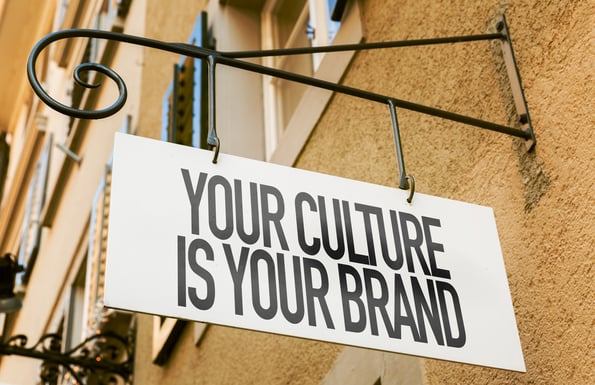The path to startup stardom is filled with fits and starts, with ~90% of businesses failing along the way. While many bite the dust because they lack a viable business model or product-market fit, some go astray because they’re missing a clear, unifying purpose and the right environment for people to perform their best.
“Great companies are built by great people,” not great ideas, says serial entrepreneur Rob Kornblum. “[And] if you want to build a great team, you have to build a great culture.”According to a research project carried out by the MIT Sloan Management Review, toxic workplace culture has been driving “the Great Resignation.” The project analyzed 34m employee profiles to identify US workers who left their jobs between April and September 2021, and found “toxic corporate culture” to be over 10x more likely to contribute to attrition than compensation.
Like having a strong sales or marketing team, company culture can make or break your startup. As your business grows, it’s important to define, iterate, and scale its core values to keep employees engaged and committed.
What is “startup culture”?
“Culture is who we are and who we aspire to be as an organization,” says Eimear Marrinan, director of culture at CRM software provider HubSpot. It’s a company’s personality, beliefs, and values. They should guide the way a company behaves, from how employees interact with one another, to how the sales team treats its customers, to how promotions are considered.
Too often, people confuse “startup culture” with “startup perks.” “Perks” are catered lunches, beer on tap, and free Uber rides. “Culture,” on the other hand, is the set of values that founders and senior leadership teams must define, demonstrate, measure, and adjust.
A company can have great perks and a dysfunctional culture at the same time. And throwing perks at people in lieu of building a positive culture isn’t a sustainable recipe for growth.
How to build scalable culture in a startup
It’s tricky developing values that are true to your startup of 2 and can scale to your company of 2k. Create sustainable, authentic startup cultures by:
Defining your culture
Get started on shaping your startup by figuring out the ideal values and behaviors you want to see. Some recommendations:
- Be unique — Crafting company values is a highly personal, iterative process. It’s important to consider your startup’s goals and articulate values that are distinctive to you and your company. Don’t just pull a list of values from another startup — your employees will know whether your company values came from a place of authenticity.
- Be memorable — It’s important to adopt values you’re proud of and motivated to work toward, instead of corporate buzzwords that can feel stale, cliché, and uninspiring. Lars Dalgaard, an investor and the founder of software firm SuccessFactors, recommends that entrepreneurs “make some values that you can remember. That you’re proud to espouse. That you want to tell everyone about.”
- Be actionable — Make sure your values and culture are actionable for every employee in every context, and give your employees an opportunity to demonstrate them. Here are a few examples of actionable values:
- Be innovative
- Take ownership
- Be adaptable
- Be empathetic
- Treat customers the way you’d like to be treated
- Be purposeful — It’s important to create an environment where there are clear missions, and to define how each employee’s role squares with your cause. “If you can’t give your people purpose in a culture, it’s not going to thrive,” says Charisse Fontes, CEO of the Culture Circle, a consultancy that helps startups define and carry out their culture.
Harvard Business School professor Ranjay Gulati has studied purpose as it relates to companies. He’s found that employees can be continually inspired by their company when their work feels meaningful and rewarding. Once people connect to their company’s purpose, they’re more likely to form emotional ties to the company, and those ties create energy within the organization.
Demonstrating your culture
If you want employee behaviors to align with your company culture, values need to be demonstrated from the top down. Once you define your culture, your senior leadership team has to lead by example and model your values. If senior leadership is living up to your company’s culture, it’s more likely employees will take it seriously and feel motivated to follow it, too.
Measuring your culture
Employee engagement surveys can be an effective tool to gauge whether your values are working and scaling effectively. For best results, ask open-ended questions, survey your employees each quarter, and keep the responses anonymous. The more detailed feedback you can gain from your employees, the better.
Some sample questions sourced from HubSpot and Comparably:
- What do you value as part of our culture?
- What is most positive about our culture and environment?
- What makes you most happy at work?
- How manageable is the pace of your work?
- How satisfied are you with your team?
- How effective are your meetings?
- How happy are you with your compensation?
- What are you worried about from a culture perspective?
- What do you like best about the leadership team?
Adjusting your culture
If your culture doesn’t seem to be catching on, don’t be afraid to make changes. Lean on your senior leadership team, as well as your employees, to help revise and redefine your values.
Companies who’ve successfully scaled their culture
Comparably, a workplace culture platform, recognizes 200 companies each year for having the “best company culture.” Its rankings are based on feedback from employees who anonymously rate their companies on metrics like compensation, work-life balance, and career growth opportunities. Here are a few companies that ranked in the top 10 during 2021.
1. HubSpot
Ranked #1 in Comparably’s survey, HubSpot was also named Glassdoor’s #2 Best Place to Work in 2022. Its culture code is central to the way employees function, and includes:
- We are as maniacal about our metrics as our mission.
- We obsess over customers, not competitors.
- We are radically and uncomfortably transparent.
- We give ourselves the autonomy to be awesome.
- We are unreasonably selective about our peers.
- We invest in individual mastery and market value.
- We defy conventional “wisdom” as it’s often unwise.
- We speak the truth and face the facts.
- We believe in work+life, not work vs. life.
- We are a perpetual work in progress.
More than 1.6k HubSpot employees reviewed the company on Comparably, and over 95% of reviewers said that HubSpot’s mission, vision, and values motivate them. Survey comments that suggest HubSpot’s culture is working:
- “Wonderful people and great work-life balance.”
- “I have grown and learned more than I ever expected, with just the right balance of safely being out of my comfort zone.”
- “Everything I heard about HubSpot’s culture before joining is 100% true and some more. They truly care about their employees’ well-being and have taken concrete steps towards it.”
The leaders at HubSpot know that burnout is real and have committed to battling burnout through initiatives like “no internal meeting Fridays” and an annual global week of rest, where the entire company takes a break during the week of July 4.
2. Adobe
The creative software firm ranked #5 for best company culture and was the runner-up in Comparably’s “best companies for diversity” survey. Adobe posts its diversity metrics publicly: About 42% of its employees are nonwhite, as compared with the tech industry average of ~ 30%. It has also achieved gender pay parity, while the tech industry has an average gender pay gap of ~6%.
This dovetails with how Adobe defines its culture—”a people-based approach to business” that cultivates a diverse, inclusive, happy workplace. About 900 employees reviewed Adobe on Comparably, and 98% said they’re proud to be part of the company.
Comments that suggest Adobe’s culture is working include:
- “It is a fantastic place to work and… everyone truly cares about you and who you are and what you bring to the table.”
- “Adobe is very different from any other company I’ve worked for in so many good ways. It constantly takes care of our well-being… offers great benefits and beyond that it is open to feedback, which is why it seems to be improving constant ly.”
- “Adobe has been the best company I’ve worked for in terms of leadership, the work I’m doing, the value I feel I add.”
3. TheoremOne
This tech consulting firm has a mission “to dismantle the existing consulting ecosystem” and transform the way businesses solve problems.
TheoremOne states their culture on their website:
- We’re in service of our clients.
- We insist on the highest standards.
- We win as a team.
- We embody professionalism.
- We operate with humility and courage.
- We expect leadership at every level.
- We always get it done.
- We find fulfillment in our work.
About 280 TheoremOne employees reviewed their company, and 94% of the reviews were positive. Here are a few employee responses that suggest TheoremOne’s culture is working:
- “Very collaborative environment, with open-minded and smart people who make work enjoyable.”
- “I am empowered and have an environment where I can grow beyond what I could imagine for myself.”
- “You can feel Theorem in the air, when joining. It is an overwhelming sense of being in a place you will never want to leave and working with people that feel exactly the same. When I joined Theorem I felt like I was born again.” Sharing your culture publicly, as TheoremOne has, can help you attract the right employees and customers — saving you time, recruiting costs, and headaches down the road.
A common thread among TheoremOne, Adobe, and HubSpot is that each company has a bold, transparent culture that they define, measure, and work to improve.
As covid continually changes the way people work, it’s more important than ever to nurture your values and recognize that startup culture isn’t defined by physical offices or glamorous perks.
“You can throw every single perk and benefit at an employee as you want,” says Marrinan, “but if leaders are not showing up in the right way, if you’re not getting the interaction that you want from your peers, if you don’t have the growth opportunities… that’s true culture.”






![300+ Business Name Ideas to Inspire You [+7 Brand Name Generators]](https://www.hubspot.com/hubfs/business-name-ideas_17.webp)

![How Startups Are Raising Money Today [Data + Expert Insights]](https://www.hubspot.com/hubfs/Copy%20of%20Featured%20Image%20Template%20Backgrounds%20%2862%29.png)


![How to Write an Investment Proposal [Template + Examples]](https://www.hubspot.com/hubfs/ft-investment.webp)
![How to Write a Partnership Proposal [Examples + Template]](https://www.hubspot.com/hubfs/ft-proposal.webp)


